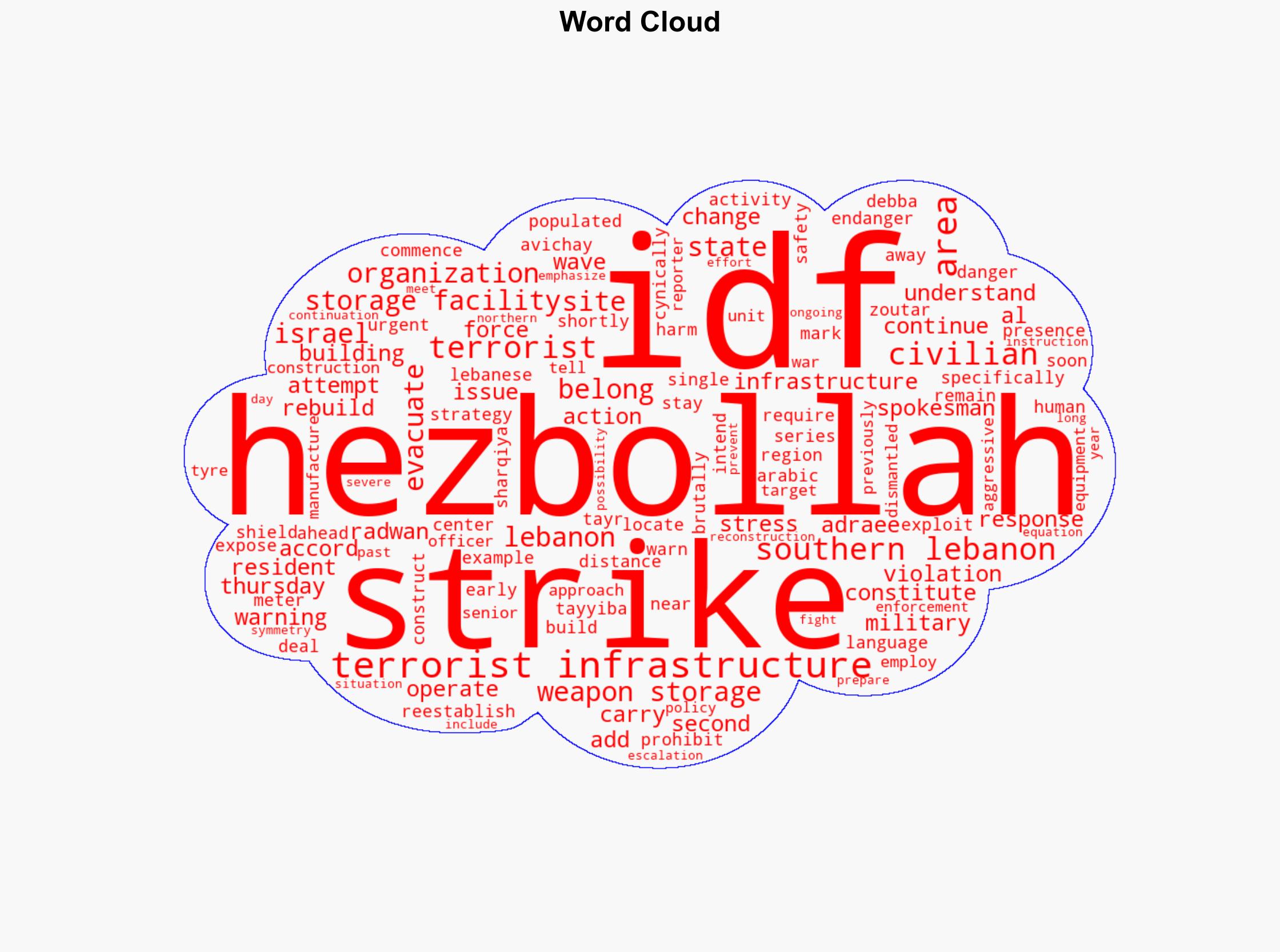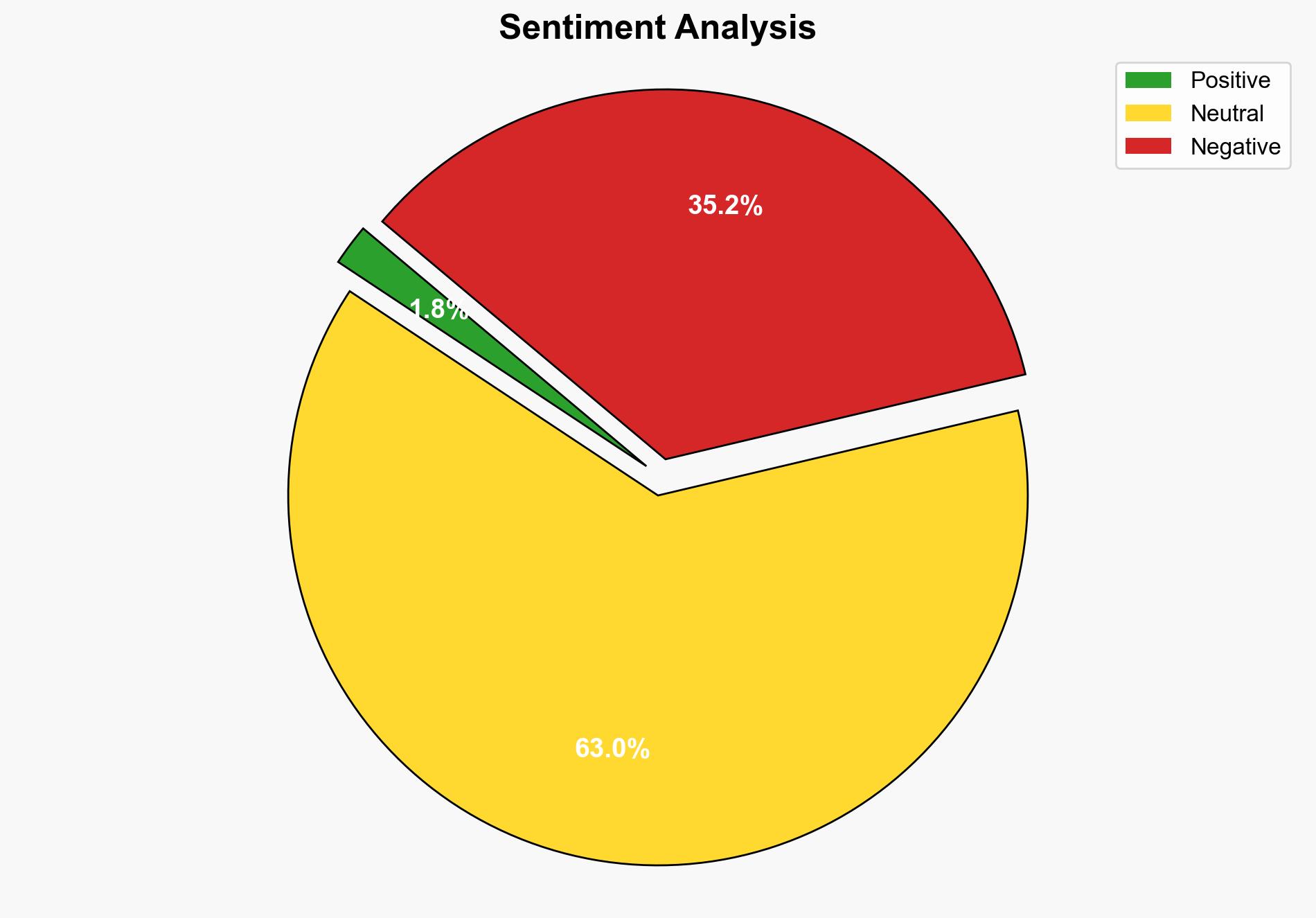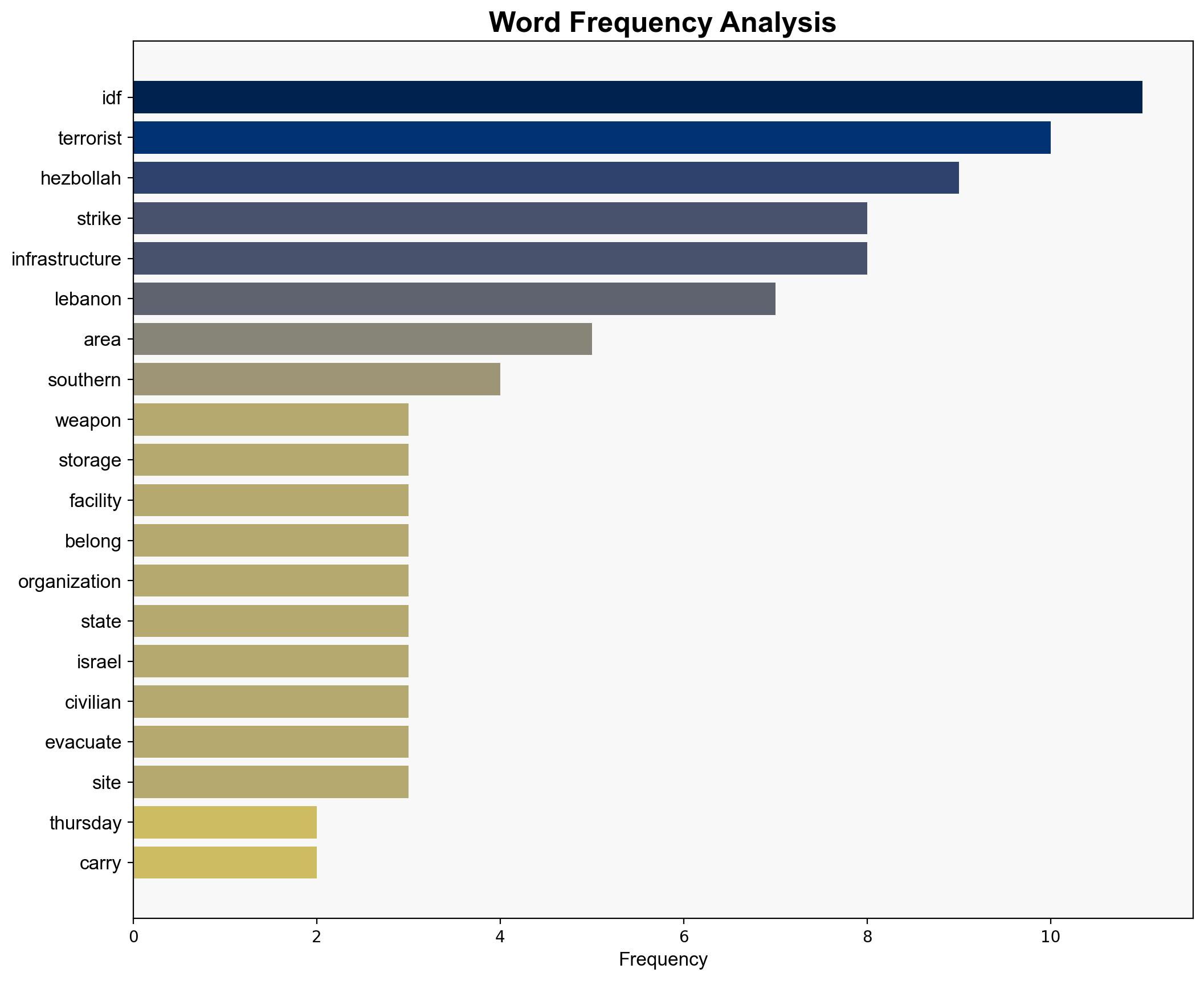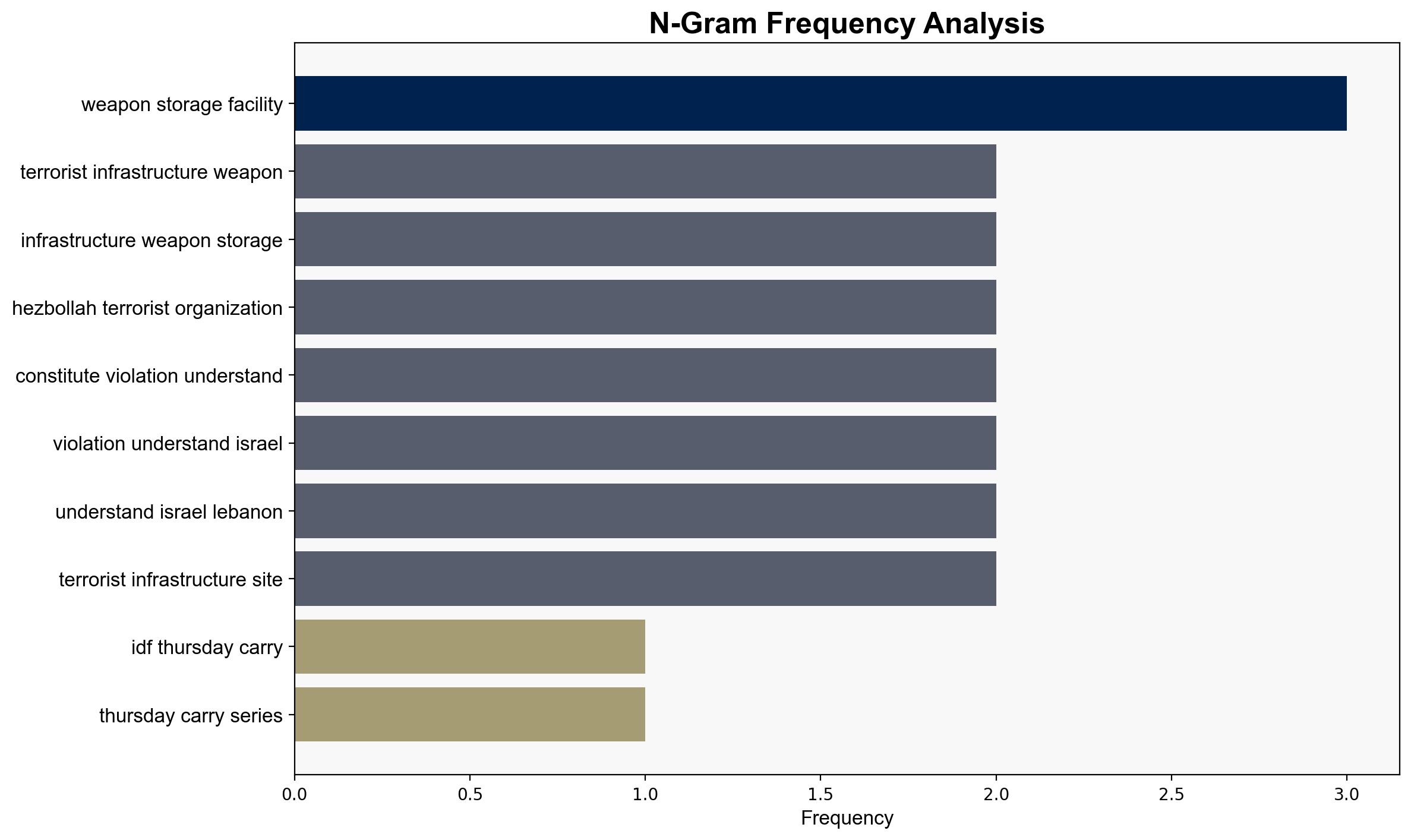IDF prepares for wave of strikes in Lebanon villages warned – Israelnationalnews.com
Published on: 2025-11-06
Intelligence Report: IDF prepares for wave of strikes in Lebanon villages warned – Israelnationalnews.com
1. BLUF (Bottom Line Up Front)
The most supported hypothesis is that the IDF’s planned strikes are a strategic move to dismantle Hezbollah’s military infrastructure in southern Lebanon, with a moderate confidence level. The recommended action is to enhance diplomatic engagement with regional allies to mitigate escalation and prepare for potential retaliatory actions by Hezbollah.
2. Competing Hypotheses
1. **Hypothesis A**: The IDF’s strikes are primarily aimed at preemptively neutralizing Hezbollah’s military capabilities to prevent future attacks on Israel. This is supported by the IDF’s emphasis on targeting weapon storage facilities and infrastructure.
2. **Hypothesis B**: The strikes are a demonstration of military strength intended to deter Hezbollah and other regional actors from escalating tensions, rather than a direct response to an imminent threat. This is suggested by the IDF’s public warnings and the strategic timing of the strikes.
Using Analysis of Competing Hypotheses (ACH), Hypothesis A is better supported due to the detailed targeting of specific military assets and the historical context of Hezbollah’s activities in the region.
3. Key Assumptions and Red Flags
– **Assumptions**: It is assumed that Hezbollah’s infrastructure poses a direct threat to Israel and that the IDF’s intelligence on these sites is accurate. It is also assumed that the Lebanese government will not intervene effectively to prevent Hezbollah’s actions.
– **Red Flags**: The potential for civilian casualties due to Hezbollah’s use of human shields could lead to international condemnation. There is also a risk of escalation if Hezbollah retaliates.
– **Blind Spots**: The report lacks detailed intelligence on Hezbollah’s current operational capabilities and intentions, which could affect the accuracy of threat assessments.
4. Implications and Strategic Risks
– **Escalation**: There is a risk of a broader conflict if Hezbollah retaliates, potentially drawing in other regional actors.
– **Geopolitical**: The strikes could strain Israel’s relations with Lebanon and potentially impact its diplomatic standing with other countries in the region.
– **Psychological**: The strikes may embolden Hezbollah’s resolve, leading to increased recruitment and support within Lebanon.
5. Recommendations and Outlook
- Enhance diplomatic efforts with key regional allies to de-escalate tensions and prevent a wider conflict.
- Prepare for potential cyber-attacks or asymmetric warfare tactics by Hezbollah in response to the strikes.
- Scenario Projections:
- **Best Case**: Successful dismantling of Hezbollah’s infrastructure with minimal civilian impact and no retaliation.
- **Worst Case**: Full-scale conflict with significant regional destabilization.
- **Most Likely**: Limited retaliatory actions by Hezbollah, followed by a period of heightened tensions.
6. Key Individuals and Entities
– Avichay Adraee (IDF Arabic language spokesman)
– Hezbollah (Terrorist organization)
7. Thematic Tags
national security threats, counter-terrorism, regional focus




